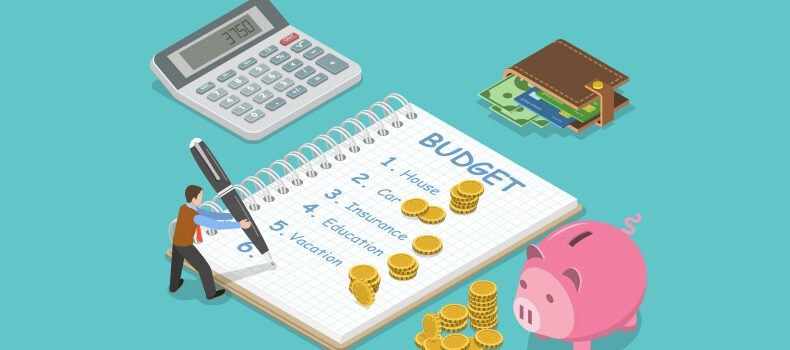
Learning how to budget is essential if we ever want to be millionaires.
A personal budget is nothing more than a guide that indicates where you spend your money and in which categories most of your income goes, which can help you put a cutoff on your costs and therefore draw nearer to your monetary objectives.
Learning how to budget is vitally important to your finances, which is essential for setting yourself apart from the rest of the world in managing your money and prosper financially.
No matter the level of income you have, a personal budget is an essential tool to get more out of the money we receive, and it shows you where your money went.
So, given the importance spydialer, it is very relevant to learn how to make a personal budget.
This is why below you have a series of tips, steps and templates that will teach you how to budget easily.
How To Make A Personal Budget:
1. Identify What Your Income And Expenses Are:
The first thing to do when learning how to make a Business budget is to identify the income that we receive from month to month and the expenses.
Despite your pay level, you should distinguish your kinds of revenue and how to factor them. If you are looking to generate new income, here are 30 ideas to make money online.
In the case of your expenses, you must have control of those fixed (such as water, electricity or the telephone bill) as well as the variables.
The latter are the ones that should become your focus of attention since many times you incur unnecessary expenses that impoverish you, and that in most cases, are avoidable.
2. Evaluate Your Expenses:
Once you have identified all your expenses, you will have to do a personal financial evaluation exercise.
This is to learn to spend wisely, so you must establish priorities and eliminate the expenses of those things that are not essential in your day today.
Learning how to budget is useful for these kinds of things. Since you will comprehend that the issue isn’t that you don’t acquire enough, yet that you are squandering your cash on things that don’t add to
your financial goals.
Furthermore, there are a few stunts to more readily control those variable costs. For example, sometimes, the cost of buying food is not known exactly.
That is why you have to be smart and go to the supermarket with a list of everything you need and buy only what is on that list. If you don’t have it, surely you buy more than you need and spend more.
It is also important to save all tickets. That way, once the month has passed, we can be aware of what unimportant things we have spent on and what things we can reduce spending on.
Remember that figuring out how to spend a plan isn’t tied to knowing your particular costs but about recognizing patterns. That is, know on normal the amount you spend on everything and screen its conduct throughout the long term.
3. Establish Savings As The First Fixed Expense:
You have money, it is normal for you to spend, but when it comes to making your budget of expenses and income, you have to force yourself to save.
To achieve this, we propose to apply savings as a fixed expense every month. If you don’t know how to get started, here is a guide to learn how to save your money.
To start, set a reasonable amount of your income that you will save. It may not be much; the idea is that you develop the habit, so you must be disciplined with this amount of money.
4. Create An Interactive Document To Control
The best way to control your budget is in a document with two columns in which you can add and subtract all your expenses and income for the month.
You can use tools like Microsoft Excel; here is a basic online Excel course for beginners.
Every time you have an expense, you must write it down in the corresponding column, and if you apply a formula, it will automatically be subtracted from the total money you have.
The columns should be income and expenses. Within income, you can have your salary from work, your businesses or your investments, for example link mylabcorp.
Within the column of expenses, you can have food, education, transportation, gas, electricity, water, telephones, cable, internet, fuel, insurance, mortgage, credit cards, loans, personal expenses ( recreation) and, of course, savings.
5. Constantly Check How Your Budget Is Going
At last, check how the spending plan is going every month and even contrast it and the earlier month, since this way you can find more graphically what things you have saved or what things you have spent more, and you can learn for the future of your actions.
In your Excel template, you could create conditional rules that automatically compare the budgets for each month, setting off alerts or indicating percentages.
Additionally, on the internet, many templates help you make a personal budget. You can download some of them and guide you; however, remember the counsel given.





